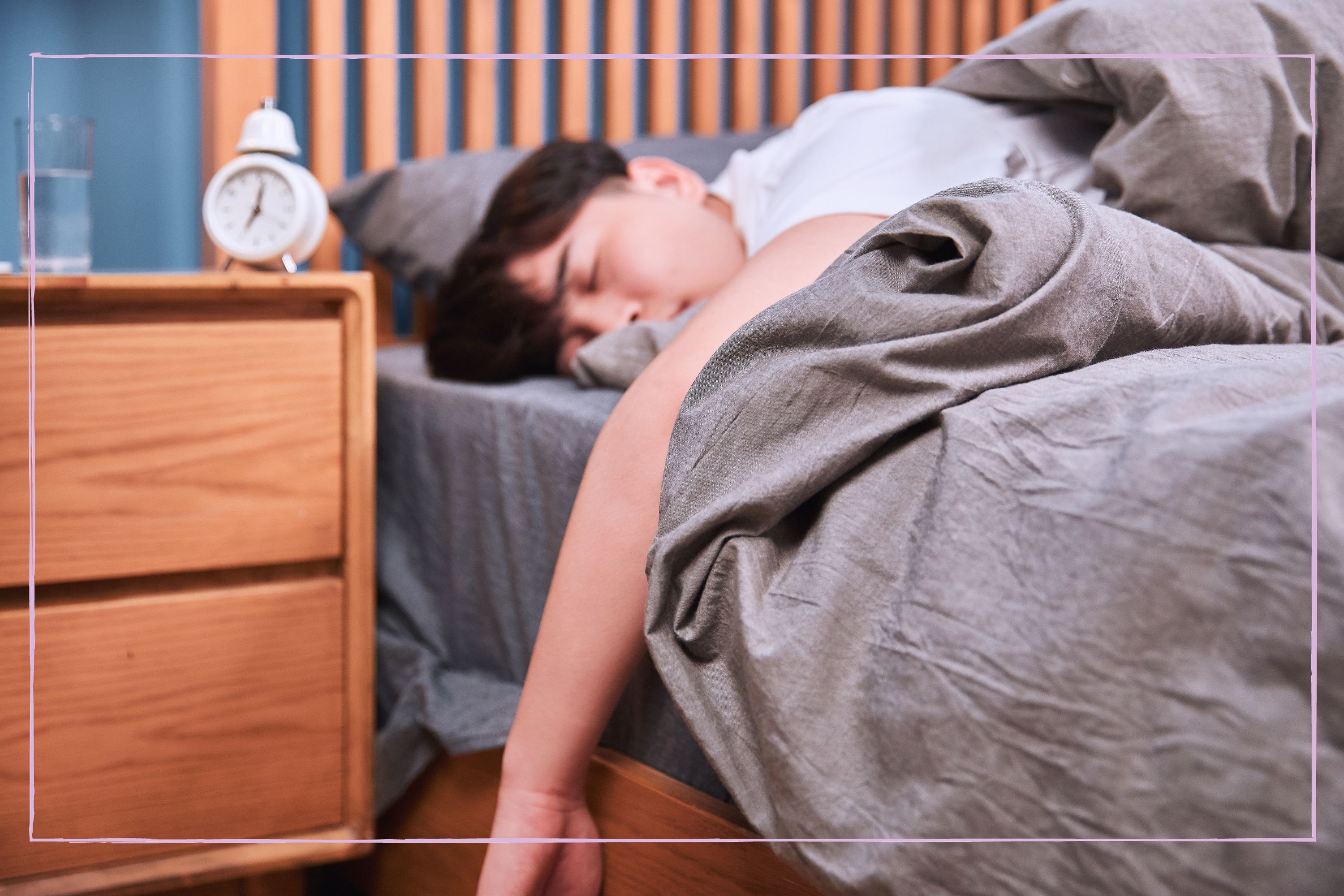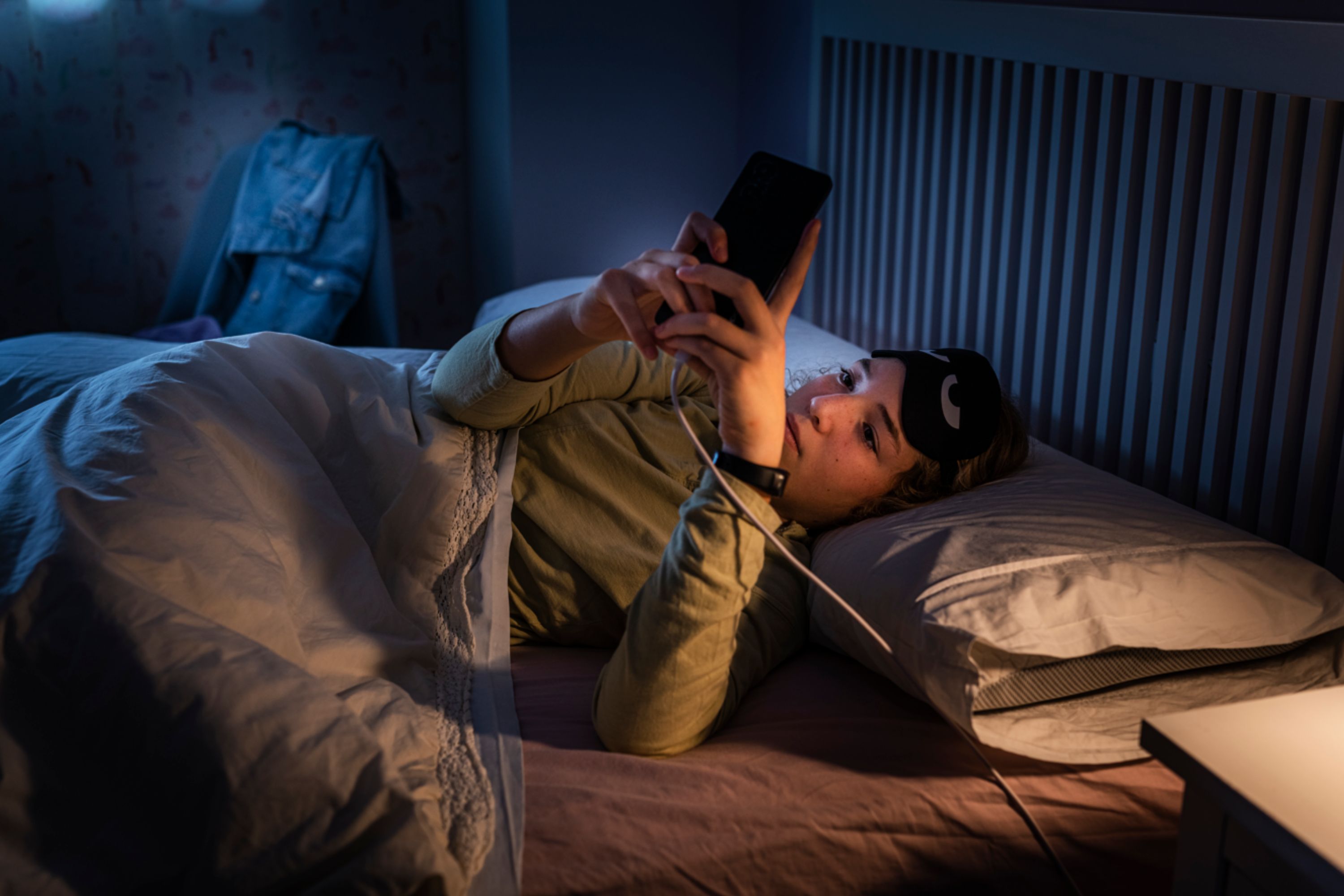This is the real reason why your teenager is sleeping in late, and it’s not because they’re lazy - here's what the experts told us
It's all to do with their body clocks


Parenting advice, hot topics, best buys and family finance tips delivered straight to your inbox.
You are now subscribed
Your newsletter sign-up was successful
Does your teen sleep in until the afternoon? Here's the real reason why, and how you can help them get a better night's rest...
You've got through the night feeds, weaning and potty training, but parenting teens can be just as hard as looking after a baby for so many new reasons. They may be able to tie their own shoelaces and walk themselves to school now, but teenagers are still going through the child development stages, which means a whole new set of challenges.
One of the issues many parents struggle with in these years is working out how much sleep teenagers need. Once they have free reign over their own bedtime, older kids seem to love staying up to the small hours and sleeping in until the afternoon, and for parents navigating this can be a bit of a headache when you're the one turfing them out of bed before school.
It's for this reason that teenagers often get a bad rep for being lazy, but actually this shift in their sleep pattern can all be explained by science. Dr Lindsay Browning, psychologist, neuroscientist and sleep expert at And So To Bed, told GoodtoKnow, "When children reach their teenage years, their circadian rhythm (which is their internal 24-hour clock) starts to change to move later. This change makes them produce melatonin (the sleep hormone) later than in younger children and in adults.
"This is why teenagers can be perceived as 'lazy' when they sleep in until noon. In teenagers, their circadian rhythm actually changes to make them want to go to bed much later (which is why they may want to stay up until say one or 2am) and then, they may sleep in until 10 or 11am to get enough sleep."

However, not many parents will be relieved by this news, as the school system doesn't exactly cater for the changing body clocks of teens. And, unfortunately, catching up on sleep at the weekends isn't the answer either, as Dr Lindsay explains.
"If teens are allowed to catch up on sleep and have a long lie-in at the weekend, then their circadian rhythm will struggle to shift earlier to help them fall asleep and wake up in a reasonable time for school on a Monday morning," she says. "It's similar to jet lag, if they sleep in at the weekend then their circadian rhythm will stay in the later time zone for the school week."
Parenting advice, hot topics, best buys and family finance tips delivered straight to your inbox.
Teenagers also need more sleep than an adult or younger child requires - despite most of them not getting enough of it - and the recommended amount is between eight and 10 hours per night. But given their shifting body clock, how can you make sure your teen is getting enough shut-eye?
Dr Lindsay says, "Setting a bedtime reminder can help, and avoid the temptation to lie in at the weekend. Also, as light is a powerful regulator of your circadian rhythm, teenagers need to get bright light exposure soon after waking. Therefore, opening curtains wide as soon as they wake and trying to get some natural daylight in the morning (perhaps by walking to school) can help."
Another tip that Dr Lindsay suggests (though it might not go down well with your teen) is avoiding looking at phones before bed. She says, "Since bright light exposure can delay the production of melatonin, ideally teens should stop screens an hour before bed, as well as having limited screens in the bedroom itself."
She also recommends cutting out caffeine and fizzy drinks, adding, "Encourage them to get into a good routine - going to bed at the same time each night and waking up at the same time each morning - as this can help them drift off quicker and lead to better quality sleep."

Dr Lindsay Browning is a sleep expert for And So To Bed, author of the self-help sleep book, Navigating Sleeplessness and can be found on social media @DrBrowningSleep.
If you're a parent to teens, you might be interested in the new parenting phenomenon known as 'teen-ternity leave'. We've also looked at studies that suggested half of teenagers are addicted to social media and the real reason why it feels like your teenager is tuning you out. Elsewhere, here's what to expect if your teenager has started dating.

Ellie is GoodtoKnow’s Family News Editor and covers all the latest trends in the parenting world - from relationship advice and baby names to wellbeing and self-care ideas for busy mums. Ellie is also an NCTJ-qualified journalist and has a distinction in MA Magazine Journalism from Nottingham Trent University and a first-class degree in Journalism from Cardiff University. Previously, Ellie has worked with BBC Good Food, The Big Issue, and the Nottingham Post, as well as freelancing as an arts and entertainment writer alongside her studies. When she’s not got her nose in a book, you’ll probably find Ellie jogging around her local park, indulging in an insta-worthy restaurant, or watching Netflix’s newest true crime documentary.